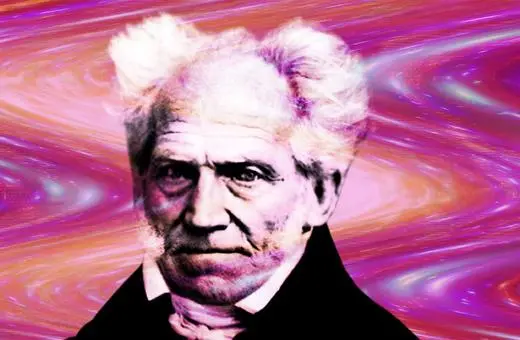Christmas is a time of joy and festivity, yet it is also a season ripe with contradictions. It is a time for gift giving, but also a time for consuming. It’s a celebration of tradition and togetherness, while also being a holiday that reflects societal pressures and conformity. We look to 6 philosophers – Nietzsche, Marx, Arendt, Weil, Russell and Epicurus – to see whether we can find a path between joy and overindulgence this Christmas. Together, these thinkers challenge us to rethink how we approach the holiday period, and ultimately make the most of it.
Need a last-minute Christmas gift for the philosopher in your life? Get them the gift of a HowTheLightGetsIn festival gift ticket this Christmas, the IAI's world's largest music and philosophy festival. Just click ‘Make it a Gift’ during checkout.
___
“What is tradition? A higher authority which one obeys, not because it commands what is useful to us, but because it commands..."
___
Friedrich Nietzsche offers a provocative critique of tradition that still resonates with modern secular Christmas celebrations. In The Gay Science, Nietzsche famously declared that "God is dead," yet he acknowledged that the "shadow of God" would continue to linger. Christmas, even in secular contexts, retains elements of its religious origins. For many, the holiday is celebrated as a cultural tradition rather than a religious one. And with nearly every country having some break from Japan to Sweden to celebrate the season in their own style it really can’t be directly attached to the traditional Christian/pagan holiday. Nietzsche, however, had little patience – unlike his attitude to everything else – for unexamined adherence to tradition, which he saw as a form of obedience to an abstract authority.
“What is tradition? A higher authority which one obeys, not because it commands what is useful to us, but because it commands. What distinguishes this feeling in the presence of tradition from the feeling of fear in general? It is fear in the presence of a higher intellect which here commands, of an incomprehensible, indefinite power, of something more than personal—there is superstition in this fear.” (Daybreak : Book I - Aphorism 9)
Nietzsche’s aphorism calls us to question why we continue to follow certain Christmas customs, such as gift-giving, elaborate meals, and decorating, even when they no longer hold their original spiritual meaning. Are these acts expressions of genuine joy, or are they remnants of inherited obligations that we perform out of habit? For Nietzsche, tradition can often serve as a substitute for critical thought, perpetuating practices that lack relevance or personal significance.
Yet Nietzsche did find value in individuals who reinterpret these traditions in creative and meaningful ways. To celebrate Christmas authentically, according to his philosophy, would require us breaking free from blind adherence and imbuing the holiday with personal significance. Whether through acts of generosity, connection with loved ones, or even playful subversion of traditional norms, Nietzsche would encourage us to make the holiday a reflection of our own values rather than a mere echo of the past.
___
“Tradition implies continuity, and continuity provides the link between past and future that we call time.”
___
Hannah Arendt’s philosophy provides a positive perspective on Christmas and the enduring of tradition. Arendt saw tradition as a means of grounding societies in shared histories and values, offering a sense of continuity in a rapidly changing world. However, she also warned against the dangers of mindlessly adhering to traditions. A needed rallying cry in the face of a secular Christmas period.






















Join the conversation